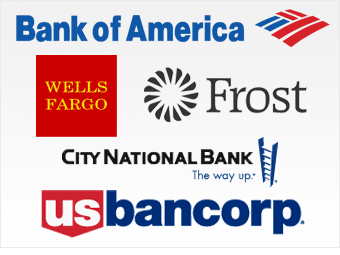This is compilation of the articles written in CNN Money.com by Hibah Yousuf, staff reporter. Its divided into 6 section, however Financial Freedomino will compiled and published in on page.
Digging through the rubble: Best bank stocks
It's been two years since the collapse of Lehman Brothers roiled financial stocks. As banks continue to recover, here are 5 that fund managers are betting on. 
Banks are back
Two years after the death of Lehman Brothers sent the financial industry into a tailspin, banks are finally emerging from the rubble and standing on their own two feet again (many with the help of a government bailout, of course).
A note of caution: The credit crisis isn't over, and new regulations requiring banks to boost their capital to be better prepared to absorb losses are still casting a shadow over future profitability.
We talked to fund managers to find out which banks they're investing in. JP Morgan Chase is an obvious favorite thanks to investors' love affair with Jamie Dimon, but click through to see which other five banks made the cut and why.
Bank of America: Cheap chic
Total deposits: $1 trillion
52-week range: $12.18 - $19.86
Bank of America's shares plunged more than 21% on Sept. 15, 2008 -- the day Lehman Brothers declared bankruptcy and the Charlotte, N.C.-based bank agreed to buy Merrill Lynch as the financial crisis intensified. In fact, Bank of America's stock sank more than 90% by the time the market bottomed in March 2009.
The stock has recovered some since then, but it suffered another hard hit this summer, when executives detailed how new Wall Street provisions -- particularly the so-called Durbin Amendment -- would impact fees that the bank collects from debit card swipes.
The pessimistic outlook initially spooked investors and drove the bank's stock price so low that it's now considered significantly undervalued, said Blake Howells, director of equity research for Becker Capital Management, which owns shares of Bank of America.
"The stock is trading at a price that is fairly cheap even by historical standards," he said. "We know Bank of America has significant exposure to regulations on debit interchange fees because it is so consumer oriented, but we think it will be able to offset the negatives with fees assessed on other product lines and additional cost-cutting measures."
With the risks already priced into the market, Howells said the stock is likely to head higher. In fact, he expects it to top $21 a share over the next few years as credit conditions normalize.
Cullen/Frost Bankers: What bailout?
Total deposits: $14 billion
52-week range: $45.67 - $60.78
Texas was among the most resilient states during the recession, so it's no surprise that San-Antonio-based Cullen/Frost Bankers was one of the banks that happily refused bailout money from Washington.
The bank's CEO, Dick Evans, recently told CNNMoney that the decision allowed Cullen/Frost to stay focused on its customers and avoid distraction from the government.
And that's a good sign for shareholders, too, said John Snyder, manager of the John Hancock Sovereign Investors fund, which owns shares of the bank.
He doesn't think any banks are home run investments due to all the uncertainties surrounding Wall Street reform, but he's a fan of those with clean balance sheets and plenty of capital like Cullen/Frost.
Those types of advantages, he said, have helped the bank consistently pay dividends to shareholders with a yield of almost 3.5%, which is likely to get healthier as the bank increases its dividend over the next few years.
City National: Hollywood glam
Total deposits: $18 billion
52-week range: $36.43 - $64.30
Known as "the bank of the stars," Beverly Hills-based City National Bank boasts a wealthy client base that provides the regional bank with a nice cushion to outlast another credit crisis.
With more than $18 billion in deposits, an extraordinary 92% of them are from customers who have non-interest-bearing accounts.
That gives City National an advantage that has helped the bank aggressively pay back the $400 million it received in government bailout funds, and take over three failed banks in the last year.
Plus, at its current price, the bank's stock is a pretty decent value, according to Jason Tyler, senior vice president and director of research operations at Ariel Capital Management, which own shares of City National. Tyler expects the bank's stock to climb almost 40% over the next two years to about $71 a share.
US Bancorp: Dividend boost
Total deposits: $191 billion
52-week range: $20.44 - $28.43
Though executives at US Bancorp, owner of US Bank, remain cautious and recently warned that the bank will wait to digest recent U.S. and global regulatory changes before increasing its dividend, investors are confident that the bank will be among the first to reward shareholders with a substantially improved payout.
The regional bank enjoys a large footprint in retail banking and has been able to maintain strong levels of profitability over the last several years, said Chris Bingaman, a portfolio manager at Diamond Hill Capital Management, which owns shares of the bank.
Bingaman added that Minneapolis-based US Bancorp is poised to gain market share as it expands its network in the 24 states where it operates and looks for opportunities to acquire other banks in those regions.
And with the recent release of Basel III rules on capital requirements, the bank is one step closer to raising its quarterly dividend from its current 5 cents per shar.
Wells Fargo: Bargain bet
Total deposits: $817 billion
52-week range: $23.02 - $34.25
Shares of Wells Fargo have slowly recovered from a 13-month low hit just three weeks ago, but the stock is still selling at a fairly generous discount.
"The stock doesn't have Wells Fargo's positive attributes priced in," said Chris Bingaman, a portfolio manager at Diamond Hill Capital Management, which owns shares of the San Francisco-based bank. He expects the stock will surge almost 50% as the credit market improves.
With a litany of financial products, healthy profit margins and a diverse geographic base, Wells Fargo is on track to consistently post strong profits, Bingaman said.
And although Wall Street reforms will weigh on some of the bank's practices, Bingaman added that Wells Fargo will be less impacted in comparison to its rivals and will likely be able to mitigate the downside by adapting and continuing to generate profit from other business lines.
For more graphical charts and others, read full article here.
Some say the easiest way to make the bank bankrupt is by asking all the depositors cashing out all their deposits at the same time.





0 comments
Post a Comment